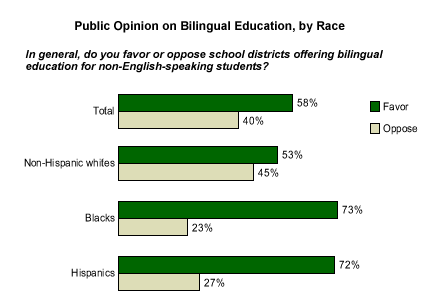Overview:
In his book "Schooling Children With Down Syndrome," Christopher Kliewer writes passionately about the responsibility schools have to include all children in mainstream classrooms, regardless of their ability or inability to function "normally" within the classroom environment. Kliewer quotes Pablo Freire, saying "democracy can only occur when no person's voice is deterministically silenced." Truly democratic classrooms include all learners and utilize Gardner's multiple intelligences as a framework for inclusion. Just because a student can't pass a written test or sit still and listen to a story being read aloud, this doesn't mean that they are unable to become invaluable members of the classroom community. Just because a student's IQ is not at an age appropriate level, doesn't mean they are not intelligent. If we only measure intellect by a number on a scoring sheet, how can we possibly see the world around us as inclusive?
From Past to Present:
American society has come a long way in the past fifty years. About two years ago I had the experience of working with students in a group home who attended a specialized school. These students came from various towns across Massachusetts. They lived in a residential neighborhood and rode in a school owned van to their specialized school. My job was to arrive at their group home at 5:30 a.m. I helped make breakfast, bathe and feed the children. Once everyone was ready for school we took a van to the school, where we would stay for the next six hours or so. Although the van ride was only about twenty minutes long, it was usually the longest twenty minutes of the day. Students would pull hair, bite and have meltdowns on the way to and from school each day. These behaviors were typical of all students in this school, this is why they were sent here, rather than their home town's public school. Employees were taught methods of restraint and were exposed to a world that many people forget or neglect to acknowledge exists. I only worked in this setting for six months. Actually, most employees were only able to stay for a year or so before being completely burned out and disillusioned.
My point in sharing this story is that we went through about two weeks of intense training before working with the students in this school. One piece of the training incorporated a video documentary entitled, "Willowbrook: The Last Great Disgrace." This documentary was recorded in 1972, with Giraldo Rivera anchoring. It documents the way that special needs children were once treated in this country, the reality of institutionalization. Institutionalization doesn't really exist today, but it is a disgusting part of America's history of "handling" children who are disabled. I use the word handling because this is really a large part of the legacy that continues to pervade our school systems and society today. Older methods of handling disabled students are disgraceful and almost too painful to watch. It's really difficult to believe what these institutions got away with.
http://www.youtube.com/watch?v=k_sYn8DnlH4 (for some reason the embedding link won't work for this...just copy and paste I guess)
So, we have come a long way from our past treatment of special needs students, to where we are today. This doesn't mean we shouldn't continue to reevaluate and re-investigate new ways to help all students become part of the classroom community. Kliewer pushes teachers to continue to "listen deeply" and develop innovative and creative ways to include all students in the learning environment. He also wants teachers to realize that learning
looks different from child to child. Blanket assessments and goals are not the way of the future, and they are not the way of democracy or authentic community. Additionally, Kliewer suggests that students who have been held back and kept separate from others will flourish and see a huge turnaround when encouraged to work with their peers. He provides examples of students who were once excluded from the mainstream classroom environment, but with some effort and creative thinking became fully valued members of new communities that were more accepting of their differences.
My Personal Experience with Inclusion:
I shared a little bit of my experience with special education students in the above segment. My experience at the "separate school" was definitely a time of learning and reflecting for me. It is honestly a time that I would never want to return to. Each day was so chaotic and stressful that if I stuck around any longer I probably would have had a nervous breakdown. I want you to know that I don't have thin skin. I don't cry or become emotional easily. Living that reality made me appreciate every little thing I'm able to do in life. It made me appreciate the job I have now. It made me realize that there are some people in the world that are beyond amazing because they are able to be hospitalized from violent incidents which occur at work, and still return a few days or weeks later. I'd encourage anyone who doesn't have some experience working with students who are severely and profoundly disabled to spend one day or even one hour observing in that type of environment.
Today I work with inclusion students who are not as severely or profoundly disabled. My school supports the co-teaching model, a newer model (for us) which has been adopted in the past couple of years. Prior to this, the special education teacher would come in and assist with students with special needs in the room. And prior to the special education teacher as assistant model, all special ed. students were kept separate (we are talking about twenty years back).
My personal experience with this has been somewhat tumultuous as well. I've had several different people in and out of my room in the 2.25 years I've now been teaching inclusion (because of retirement, reassignment, etc.). I've also had very little training on co-teaching, which sounds like a simple enough premise, but is actually quite difficult in terms of logistics. I do have some students who come into my room from a separate program within the school. They are supported by a paraprofessional, but the special education teacher is unable to come in at this time. Also, the special education teachers and myself don't have the ability to meet extensively before and after school. Additionally, I have over 100 other kids I'm responsible for, kids who also have a variety of needs. So it sounds really nice to be able to find creative and innovative ways to work with each student and each type of learner, but I've found that logistics often get in the way. I do try to differentiate and teach in a way that incorporates the multiple intelligences and different types of learning styles, but it's very challenging to do this en masse. Differentiation should not be a method used to teach a different lesson to every kid every day. I think about differentiation as adding room for movement and flexibility within the classroom, both literally and figuratively. This is what all of us should be focused on in all classrooms, not just inclusion.
Ultimately I agree with much of what Kliewer writes about, but I'm also all about reality. I think its unrealistic, and actually insulting to ask teachers to develop several different plans and spend hours before and after school planning and toiling away working on accommodations (as in the example of Shayne and Isaac). I think this may be a better example for elementary teachers, as they are only working with 20-30 kids each day. One final point I think needs to be brought up is that we should not constantly be asking non-special education students to function as assistants to those who need extra help. I've found that many of the struggling kids get paired up with students who are most patient and accommodating. This is a great example of the reciprocity that Kliewer talks about, each student benefits in some way, but it often requires a tremendous amount of patience for non-struggling students. This setup often ends up happening in each class throughout the day. For example, one student I know of was asked to work with a challenging student in ELA, science and in my class. Is this fair for either child in the scenario?
In summary, inclusion can be wonderful in working to build the confidence and participation levels of those who struggle with learning. It can also be wonderful to witness the reciprocal relationships built between "regular" education students and "special" education students. However, inclusion cannot and should not be taken lightly. It is not a field full of pretty flowers and holding hands where everyone gets along and is at peace with each other. It is real, hard work and planning that requires a lot of time, dedication and consistency to make things work effectively. Consequently, there will always be more work to be done.










